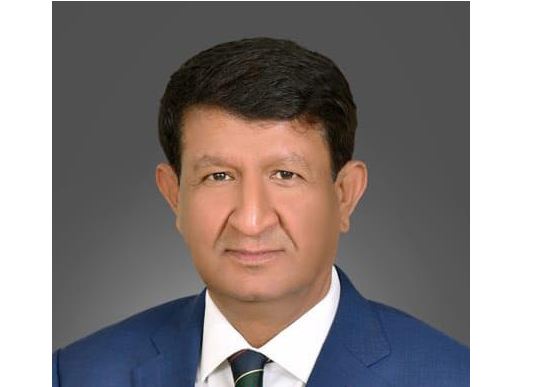Ishtiaq Ahmad
The Cyprus dispute has positioned the Turkish Cypriot people as significant victims, entangled in a conflict rooted in historical tensions. The island’s division has exposed them to multifaceted challenges, including political marginalization andeconomic hardships.
The lack of international recognition for the Turkish Republic of Northern Cyprus has isolated Turkish Cypriots, impeding economic opportunities and global interactions. Economic struggles are evident in limited trade and investment, contributing to a lower standard of living compared to their southern counterparts.
Political dynamics in Cyprus have likewise exacerbated Turkish Cypriot marginalization. The internationally recognized Republic of Cyprus, represented only by the Greek Cypriot side, has monopolized the island’s representation in global forums, leaving Turkish Cypriots without a direct voice in diplomatic affairs. Disputes over power-sharing, property rights, and the nature of a federal state have hindered progress.
According to the founding international agreement of the Republic of Cyprus, the legitimacy of the bi-communal, bi-zonal state was based on the continuation of the partnership. But if the partnership failed, the international agreement outlined, neither Greek Cypriots nor Turkish Cypriots would have the right to claim the island’s entire territory.
Since 1974, however, Greek Cypriots have pretended to have sovereignty over the whole island while Turkish Cypriots rule Northern Cyprus. in contrast to the 1960 international agreement, the international community recognises Greek Cypriots as having a legal sovereign right to rule over the entire island — a critical violation of the founding document of the island state.
The Greek Cypriots have been rewarded by the international community, despite being the intransigent party all along in the conflict resolution process. The failure of the 2004 Annan Plan, influenced by Cyprus’s EU accession, further deepened the decades-long divide on the island, with Greek Cypriots perceiving EU membership as strengthening their position, while Turkish Cypriots saw it as an avenue for increased recognition.
The international community’s attention must acknowledge the unique struggles of Turkish Cypriots to foster an environment conducive to lasting peace. Turkey’s support for a two-state solution, proposed by the Turkish Cypriot leadership in the 2021 5+UN informal talksin Geneva, reflects a culmination of failed negotiations and changing geopolitical dynamics in the Eastern Mediterranean.
Both Turkiye and TRNC have concluded that the decades-long UN-led process to reach a federal solution in Cyprus was a waste of time. The reason being that the Greek Cypriots never had an incentive to reach such a settlement, and the US, EU as well as Greece and the United Kingdom as two guarantor powers have been complicit in the Greek obduracy on the matter.
For argument’s sake, a true federation in a sociological as well as a legal sense can only come about as a result of free self-determination of two partners, who hold an equal status at least as far as this freedom and power of self-determination is concerned. A federation, as a form of contact, cannot be otherwise envisaged than as a consent of partners who are considered able and entitled to decide and speak freely for themselves. Two parties, one of which is oppressed and governed by the other, cannot validly conclude a federation. Therefore, the TRNC provides a decisive prerequisite for what is considered by both parties as the solution to the Cyprus problem. It should be welcomed and recognized by everyone interested in such a solution.
The core issue remains the international community’s silence on Greek Cypriots’ refusal to recognize the Turkish community as equal partners. The recognition of Greek Cypriot sovereignty over the entire island exacerbates tensions, violating the founding principles. The UN’s misdiagnosis of the conflict and failure to address Greek Cypriot intransigence has further complicated the path to resolution.
Therefore, the two-state solution, proposed by Turkish Cypriot leadership and supported by Turkiye, is the only option on the table now. Trying anything else under the old framework would amount to perpetuating the economic misery and political marginalisation of the Turkish Cypriot people. The UN shall still lead the conflict resolution process for being the largest international body for peace and security, but its previous framework for the purpose has become null and void under the current circumstances.
In recent years, the discovery of natural gas reserves has intensified the Cyprus dispute, adding economic and geopolitical dimensions. Competing claims over resource ownership, competition for exploitation, and the impact on regional alliances create a complex web of challenges. The management of these resources has become a contentious issue in reunification talks, involving international actors and energy companies.
Turkish Cypriots and Greek Cypriots, as the two co-owners of the island of Cyprus, are also the co-owners of the hydrocarbon resources around the island. By virtue of this fact, the two sides should be jointly involved in every decision-making process regarding this issue, spanning from the initial exploratory phases, to holding discussions on how these resources will be monetized, shared, and transferred to world markets in the future.
In this regard, the Turkish Cypriot leadership has offered the Greek side to either suspend all actions pertaining to hydrocarbons until a negotiated settlement to the Cyprus issue is reached; or to establish a joint committee where the two sides would jointly conduct all activities including the planning, decision-making and implementation of the project together and where the revenue obtained from hydrocarbons activities would be used first and foremost to finance a negotiated settlement.
Despite this, the Greek Cypriot side has been engaging in unilateral activities regarding the hydrocarbon resources around the island with neither the consent nor participation of the Turkish Cypriot side, in total disregard for their legitimate rights and interests.
Ultimately, recognizing the historical context, addressing economic disparities, and fostering political equality are crucial steps toward a comprehensive and just resolution in Cyprus. The international community’s commitment to a fair and inclusive approach is paramount for overcoming the hurdles and achieving lasting peace on the island.Clearly, the establishment of two states in Cyprus, living side by side, will establish a lasting peace in the island.
Concluded.
The author is an international relations expert.

















